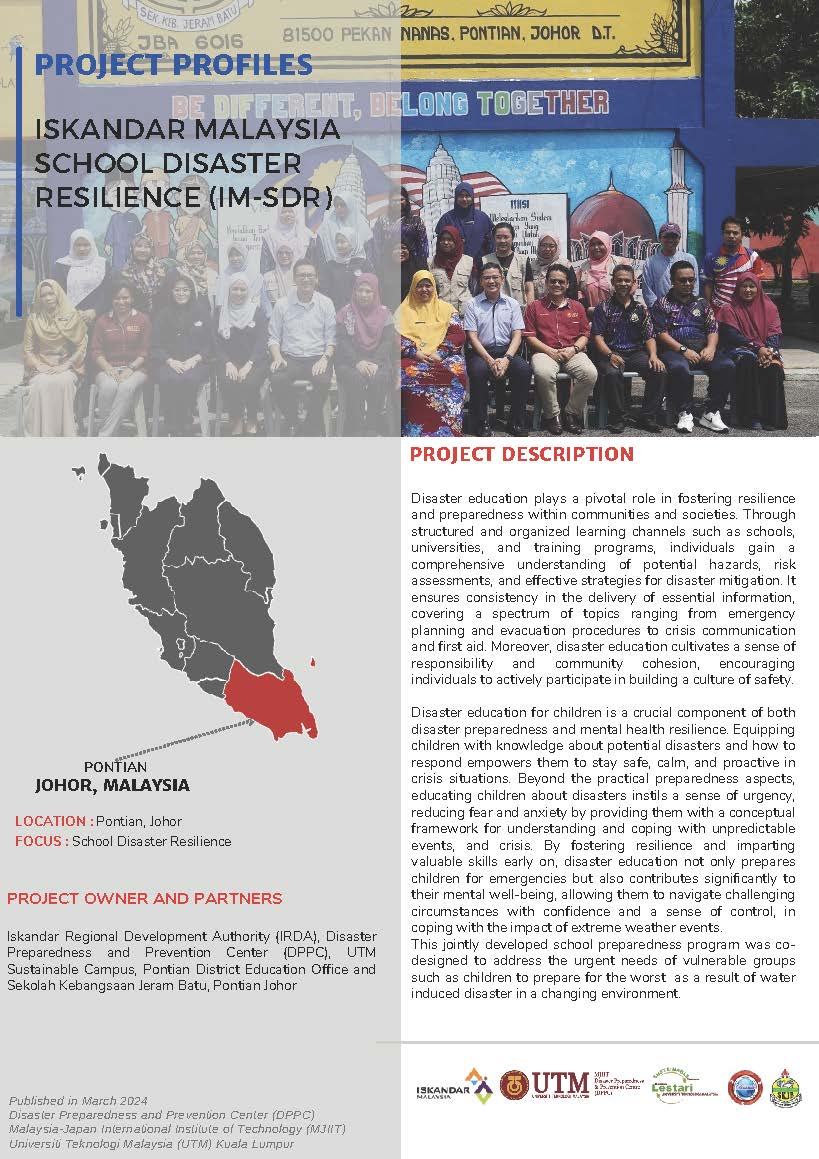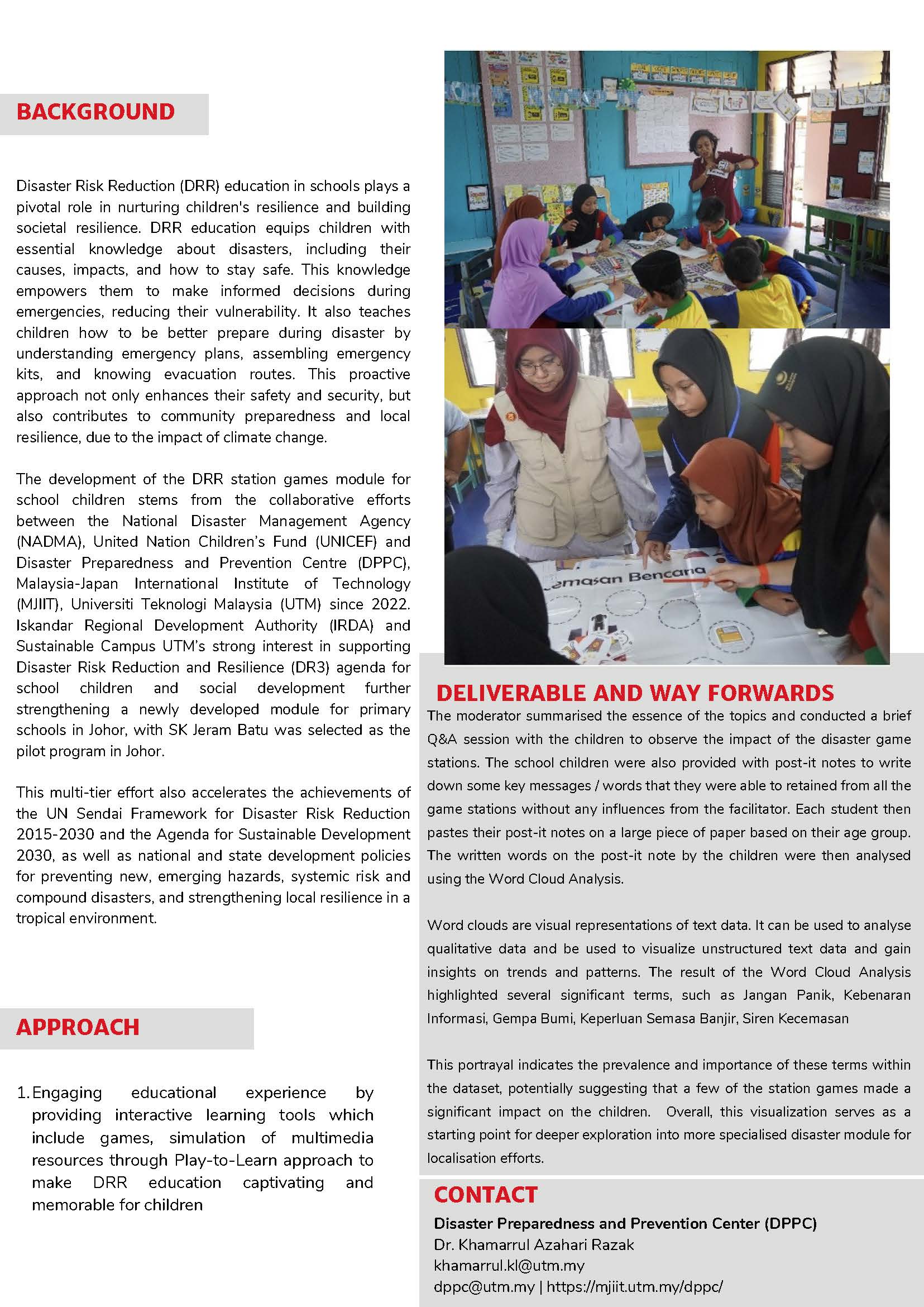ISKANDAR MALAYSIA SCHOOL DISASTER RESILIENCE (IM-SDR)
Disaster education plays a pivotal role in fostering resilience and preparedness within communities and societies. Through structured and organized learning channels such as schools, universities, and training programs, individuals gain a comprehensive understanding of potential hazards, risk assessments, and effective strategies for disaster mitigation. It ensures consistency in the delivery of essential information, covering a spectrum of topics ranging from emergency planning and evacuation procedures to crisis communication and first aid. Moreover, disaster education cultivates a sense of responsibility and community cohesion, encouraging individuals to actively participate in building a culture of safety.
Disaster education for children is a crucial component of both disaster preparedness and mental health resilience. Equipping children with knowledge about potential disasters and how to respond empowers them to stay safe, calm, and proactive in crisis situations. Beyond the practical preparedness aspects, educating children about disasters instils a sense of urgency, reducing fear and anxiety by providing them with a conceptual framework for understanding and coping with unpredictable events, and crisis. By fostering resilience and imparting valuable skills early on, disaster education not only prepares children for emergencies but also contributes significantly to their mental well-being, allowing them to navigate challenging circumstances with confidence and a sense of control, in coping with the impact of extreme weather events.
This jointly developed school preparedness program was codesigned to address the urgent needs of vulnerable groups such as children to prepare for the worst as a result of water induced disaster in a changing environment.

